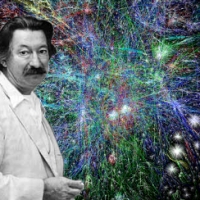Waiting for the Fail Whale – What Y2K can teach us about Twitter
“What we use is not ours simply because we use it.” – Erich Fromm
Breakdowns have an annoying habit of not arriving on time. It often seems as if the more closely they are watched for, the more excitedly they are anticipated, the less likely they are to meet expectations.
But if you’re looking for a place filled with people eagerly awaiting a crash that keeps getting pushed off until tomorrow, look no further than Twitter.
In the wake of Twitter’s purchase by Elon Musk, and the steady rollout of his new decrees and policies, many of the platform’s users (and many others watching the platform) have decided that the birdsite is not long for the world. Sardonic comments about Twitter’s impending end, mingle with heartfelt farewells, and directions to the new platforms to which users are migrating, even as legions of Musk’s loyal fans declare that everything is going just fine. While different users are likely to project their own attitudes towards Musk onto the overall state of the platform, it seems fairly clear that the platform is going through a period of flux (to put it midly). A significant portion of the employees have been fired (many of whom had important skills and knowledge), advertisers are fleeing, the site is filling back up with even more trolls and bigots, many users are decamping for rival platforms, regulators (notably in Europe) are watching closely, the platform seems to many users to be increasingly glitchy, and the captain of the ship seems hellbent on steering the leaking vessel directly towards every iceberg possible. Every day feels like it could be Twitter’s last.
In this atmosphere of awaiting a technological crash that never seems to come, some folks on Twitter have reached into the past for the sake of making a comparison. And there they have found Y2K. To cite but one example, this one from, John Paul Brammer:
The above comment, and the other ones on/about Twitter like it, should clearly be interpreted as amusing jests. And the reference to Y2K certainly captures the way that event (or non-event) continues to be remembered by many people: a promised technological catastrophe that never came to pass. Nevertheless, comparing Twitter to Y2K provides an interesting opportunity to reflect upon why Y2K was handled, why Twitter is in trouble, and what it means to be unhappily confronted with our reliance on technological systems that we do not actually control.
Zero: Everything you need to know about Y2K in one sentence and four short paragraphs.
Y2K is the story of an economic problem that became a technological problem that became a social problem.
The economic problem: the software crisis that would come to be known as Y2K has its origins in the early days of computing. As computer memory was quite expensive at that time, programmers responded to pressure from their managers to cut costs by representing dates using six digits instead of eight. Thus, for example, August 14, 1956 would be coded as 081456 as opposed to 08141956. Importantly, this worked quite well: it helped save money and the computers worked just fine with their calculations assuming the century dates were 1 and 9. Sure, it was bound to create problems once the century dates became 2 and 0. But addressing that would be a problem for someone else.
The technological problem: even though IT folks had known this would be a problem eventually, they had assumed someone would fix it long before the year 2000. Alas, as the 1990s began trundling on it became clear to many in the IT sector that there was a lot of work to do, and not a lot of time in which to do it. As warnings rippled across the IT community, many in the IT world sprang to action, convincing their employers (big companies, government bodies, etc…) of the seriousness of the problem, and assembling the people necessary to fix the problem. There were risks that some systems would shut down, risks that computer systems would get filled up with garbage data, and enough serious dangers that no one could afford to just wait and see. The actual technical work of fixing the problematic code was not necessarily the most technically complex work, but the challenge was how much work needed to be done and how little time there was in which to do it. And thus, an army of largely unseen technical professionals mobilized (internationally!) to squash the Millennium Bug before it could bite.
The social problem: the scale of Y2K related problems and the lack of time, resulted in many figures outside of the tech community fretting that something terrible might happen. Indeed, for many people in government and business (as well as for many “regular” people), Y2K was an uncomfortable notice that daily life had come to be reliant on the normal functioning of computer systems they had either taken for granted or been unaware existed. Apocalyptic coverage of Y2K filled the media—often with scant attention to what the actual experts were saying—while government officials worked zealously to keep track of the problem and push for remediation. An air of uncertainty hung over the whole affair: there was certainly hyperbolic media coverage, but many of the official reports couched their predictions of “just some bumps in the road” with a recognition that this represented a new sort of crisis. In short, even if fixing Y2K was a problem for the IT people, it represented a problem for everyone whose life had come to rely on computers…which was pretty much everyone.
And then when 1999 became 2000…nothing happened. Well, that’s not true. Lots of stuff happened. There were reports of plenty of glitches and problems, yet these were quickly handled. The bumps in the road materialized as bumps in the road, but the people who had been led to believe that planes would fall out of the sky (despite the dubiousness of such claims), were quick to label Y2K as much ado about nothing. And in the eagerness to scoff at Y2K, what was easily forgotten was the reality of the underlying technological issue, and the legion of people who worked their butts off to fix the issue in time.
For a more robust discussion of Y2K: see “The Lessons of Y2K, 20 Years Later,” “Life’s a Glitch,” and my chapter in the recent edited volume Abstractions and Embodiments.
And now back to Twitter…
One: Maintenance is important. It’s really important.
Discussions of technology often place such a heavy emphasis on things that are “new and innovative” that things that are “old but still functioning and essential” are overlooked or forgotten. And as Musk has laid out his plans for Twitter’s future, there has been an almost relentless focus on the new features that will be rolled out in the days/weeks/months ahead. Thus, there has been an understandable focus on the various plans for the future of Twitter and the ways in which some of these features may go awry, or simply not work at all. And the anticipation of Twitter’s coming collapse is quite often bound up in some sense that it is the new things that Musk is attempting that will break Twitter: being able to buy a “check mark” will be a debacle (the initial rollout of this was), changes in moderation policies will cause users and advertisers to flee (which has already happened), regardless of the specific the sense is that what will take Twitter down is the pursuit of something new that winds up catastrophically backfiring. Such a sentiment is in keeping with the prevailing attitude towards technology (especially computer technologies) which only cares about the new, but it overlooks a more likely source of problems.
Which in turn, brings us back to Y2K.
As was noted previously, it is overly simplistic to reduce Y2K to a single sort of problem—for the problem that Y2K presented itself as, varies across groups. Nevertheless, when looking at Y2K it can be worthwhile to see it as being a story about the importance of software maintenance. The programmers who decided to start truncating dates knew that there would eventually be a problem, but they were confident someone else would come along to fix the code, and/or they believed that the code they were writing in the 1960s simply would no longer be in use thirty years later. Alas, as the Y2K crisis demonstrated, much of that code was still in operation decades later, and nobody had fixed it. For all the fawning over new computer technologies in the 1990s (and there was plenty of fawning over new computer technologies in the 1990s), Y2K revealed that beneath that glistening exciting newness was a lot of old code written in forgotten code languages that was still in operation. Heck, the problem was even bigger than this, for as groups tried to get a handle on their Y2K related problems, many organizations came to realize that they didn’t even have a good sense of just how many computer systems they were using. Y2K was, in at least some sense, the revenge of deferred maintenance.
In recent years, an excellent group of scholars of technology have been operating under the name “The Maintainers,” and as was captured in the piece “Hail the Maintainers,” these scholars have set out to emphasize the importance of maintenance in the face of the glitzy constant focus on innovation. Right now, Twitter is providing an opportunity to see the importance of maintenance in real time. Many users are already finding the site to be more glitchy. And some of the employees who are no longer with the company have sounded the alarm about the likelihood that if things aren’t maintained it is going to start leading to more and more problems. Of course, maintenance work is rarely flashy and exciting, it seldom involves the unveiling of sexy new features that draw in new users. Instead, maintenance is about keeping things working—and maintenance is as important for computer systems as it is for roads and tunnels. In the early days of the year 2000, many of the IT professionals who worked on Y2K reflected that one of the lessons to learn from Y2K was the importance of not deferring maintenance…and Musk’s Twitter might be about to learn that lesson the hard way.
Of course, the problem with maintenance is that someone (well, multiple someones) needs to do it. Which brings us to the next point…
Two: Maintenance work requires people who know what needs to be fixed and how to fix it.
Even before Musk purchased Twitter, there was a story going round about how he planned on firing around two thirds of the company’s employees. And after he took over, he fairly rapidly fired about half of the company’s employees, and then another significant number opted to resign (or were also fired) in the following weeks. The massive departures (which seemed to peak around November 17/18) gave rise to a further sense that Twitter’s days were numbered, especially as it became clear that a slapdash approach to assessing which employees to keep had led to many essential employees being fired (with many other essential employees choosing to leave). At this point, Twitter is operating with a somewhat skeletal crew, one that seems to include a large number of employees who are unable to easily leave even if they want to (due to visa status), and which doubtless includes many employees who would be only too happy to leave Twitter for another company. Some have tried to lump these layoffs into the broader context of layoffs sweeping across the tech sector more broadly, others (notably Musk’s fans and figures on the far right) have been chortling at what they perceive to be Musk purging the company of any leftist elements, and still others are just trying to get a handle on who is actually left at the company.
There is much in Musk’s layoffs that deserves to be discussed, but one vital question to consider is this: if something breaks, will the person who knows how to fix it still be there?
During the Y2K crisis, many companies and organizations found themselves not just having to fix systems, but also struggling to understand them. Oftentimes the person who had set something up was no longer around and had left behind rather poor documentation to explain what they had built and how they had built it. In many cases, companies and organizations no longer even had anyone in their IT department who knew how to write or assess the code languages in which some of the systems being assessed had been written. In short: the people who knew how to keep things running, were no longer around. What’s more, the scale of the Y2K related issues meant that there was something of a rush to hire up skilled programmers and put them to work—and in many areas there was a real scramble to snap up the people with the requisite skill sets. To the extent that many companies and organizations had been operating with rather skeletal IT departments, Y2K forced them to greatly expand their IT departments in order to get the necessary maintenance and remediation work done on time.
Of course, those working on Y2K had a major advantage: they more or less knew what sorts of things to look for, and they had a pretty good idea of when things needed to be done by. Y2K, in this regard, is about repairing things before they could break. Twitter, alas, is in a rather different situation; one in which the company needs to keep its eyes on all of its various systems even as it has fired a majority of the company’s eyes. Given the mass layoffs, the company is likely in a reactive mode (especially with so many of the employees now focusing their efforts on Musk’s latest fantasy), wherein it probably won’t be entirely clear what is going to break until that thing actually breaks. And when it breaks, is Twitter going to have the right people around to fix it? Is Musk going to be able to lure back the people who he just fired? How much damage will the company sustain if it suffers a serious prolonged outage? There have been many joking references of late to the imminent return of the Twitter “fail whale” screen of old, but does Twitter still have the people necessary to prevent the return of that embarrassing screen? Glitches aside, thus far at least Musk can say (and his fans can echo) that he has kept the platform running, but if it breaks down will he be able to get it running again?
In the not too distant past, Facebook and Amazon both experienced rather embarrassing breakdowns. Indeed, during the Facebook outage (which also took down Instagram and WhatsApp) Twitter was full of jokes about “guess we’re all on here now,” but a Twitter outage (especially a lasting one) might provide the final shove necessary to get many users to decide to head to other platforms (and to convince advertisers to spend their money elsewhere).
Of course, waiting for the return of the “fail whale” is in keeping with a particular sort of apocalyptic anticipation. Which brings us to the next point…
Three: Collapse does not look the way we think it does.
Popular culture has provided us with a very dramatic idea of how collapse and failure looks: a sudden blackout, devastation stretching as far as the eye can see, literal collisions, mass death, panic everywhere. This is certainly the imagery that gets delivered in blockbuster films, anxiety inducing television shows, and media coverage that leans in hyperbolic directions. It is a version of events that tends to overlook the ways that people are able to come together to get through a particular calamity, and perhaps more importantly it makes it so that people are always waiting to see a theatrical conclusion worthy of the final act of a tragic opera. And as a result people tend to overlook the smaller signs of things slowly falling apart, or to altogether ignore it when things go wrong so long as those things are less than the apocalypse.
Y2K has become largely fixed in the popular imagination for the absolute worst-case scenarios: planes falling from the sky, nuclear plants melting down, economic collapse, years of darkness. Indeed, when people mock Y2K it is not uncommon to hear some version of “they said planes were going to fall out of the sky!” To which it can be useful to respond with a question of, “who said planes were going to fall out of the sky?” To be clear, there was plenty of apocalyptic anxiety around Y2K, and many media outlets were only too happy to lean into that to sell magazines or attract viewers (as the lackluster made for television “Y2K: the movie” attests); however, the trustworthy sources on Y2K weren’t telling people that “planes were going to fall out of the sky.” If you look at what most reliable sources in the IT sector, business, and government were saying throughout the crisis, it tended to be some version of: there’s a lot of work to do, we need to do it, we will do it, but there will probably be some bumps in the road. And when 2000 rolled around, there were quite a few bumps in the actual road, but the people who were looking for the planes to come plummeting down didn’t see the bumps. Of course, there were some people who were predicting the end was near (to be fair: there are always people predicting the end is near), and some serious folks who were expecting that things would be worse than they actually were; but if you get beyond the hype and hyperbole to consider what the people in the know were saying as 1999 drew to a close, they were saying it wouldn’t be the end of the world.
Too many people are expecting to try to open Twitter and for the platform to simply no longer exist. As if one morning they’re going to turn to their phone only to find that the icon for the Twitter app has vanished altogether. Twitter will have been working mostly okay…and then suddenly…it will stop working at all! And rather than be able to turn to Twitter for the latest news, people will have to head to other sites and platforms in order to get the latest news on what is happening with Twitter. But chances are, Twitter isn’t going to have such a dramatic collapse, and should such a scenario occur it will probably be the result of the failure to handle a steady accumulation of problems. Yes, there are those who are shouting the equivalent of “the birdsite is going to fall out of the sky,” but if you read the comments coming from former Twitter employees (and other knowledgeable folks in the tech world) you’ll see that more of them are predicting bumps in the road. Not the complete failure of the platform…but things not loading properly. Not the sudden disappearance of the platform…but certain features not working right. Not the platform becoming literally unusable…but a steady accumulation of enough glitches that people decide they’d just rather stop using it. Not final destruction brought on by vengeful gods…but the result of a million self-inflicted cuts by an executive who thinks he’s god. And if everyone is sitting there waiting for the moment the platform suddenly stops working altogether, they’ll easily shrug at the many small signs that things are going wrong.
Of course, when it came to Y2K, there was a legion of people working tirelessly to ensure that “bumps in the road” would be the worst that would happen, whereas with Twitter right now it seems that “bumps in the road” is almost a best-case scenario.
Call it ruin lust, or apocalyptic romanticism, or the destructive sublime, or doomerism, or [Reader: insert your own catchy term here!]—there is often a strange desire to be there to bear witness to cataclysmic moments. To be there to see it as the lights go out and the planes fall from the sky, or to be there to watch as a platform that many people rely on suddenly stops working. Quite often, undergirding these sentiments is a desire to see various groups get their comeuppance, whether that is the societies that trusted too much in computers, or a tech executive that is loathed by many. Yet when it comes to the anticipation of collapse, there is often at least a small desire for the calamity to happen.
Which brings us to the next point…
Four: Averting breakdowns is actually a good thing.
Let us return for a moment to the response to Y2K of “planes didn’t fall out of the sky” in order to acknowledge an important truth: it would have been terrible if planes had actually fallen out of the sky, it would have been terrible if a single plane had fallen out of the sky. On a similar note, had rolling blackouts occurred plunging much of the US into darkness (in the middle of winter) that would also have been bad. And had Y2K related disruptions caused economic turmoil on the scale of the great depression? You guessed it, that also would have been bad. Of course, those are the more exaggerated scenarios, but if you just consider many of the bumpier of the “bumps in the roads” possibilities, it is also clear that it is for the best that the bumps that occurred were so minor as to go unnoticed by most.
Was Y2K anticlimactic?
Yes, yes it was.
And that is a very, very good thing.
When some impending calamity is hyped there can be a certain sense of anticipation that builds up around it. Some of this may be wholly justified worry over the possibility of things going horribly wrong, but some of this might also involve a certain degree of wanting to have a front row seat as things fall apart. Big screen blockbusters have helped set our expectations for disasters—especially with the canard of “all disaster movies start with a scientist being ignore”—and if audiences sat down for a disaster movie only to watch something in which anticipatory precautions are taken that successfully limit the destruction, they would likely come away from the film rather disappointed. If people think they are about to watch chaos and destruction…they can come away feeling let down when things just keep puttering along. Of course, when you have a voyeuristic relationship to a disaster (a “shipwreck with spectator” situation, if you will), one wherein you can behold the disaster while being spared from danger yourself, it can be tempting to simply gaze in horrified awe (mixed with relief for one’s own safety)…but let us not lose sight of the fact that actually experiencing a disaster is a horrible and traumatizing thing.
To be clear, no one is really predicting that Twitter breaking down represents a genuine disaster. This is not to ignore the very real risks that are represented by the platform becoming (even more of) a comfortable home for bigoted bile and rampant misinformation, but there is a distinction between a wry comment of “Twitter is becoming such a disaster” and a Twitter breakdown resulting in the need to mobilize FEMA. There are no real predictions that a major Twitter outage could cause rolling blackouts, trigger an economic calamity on par with the great depression, jeopardize the safe operation of nuclear power plants, or majorly disrupt the flow of essential goods. And yet, for many of the people who use Twitter to help them earn their livelihoods a Twitter break down could have a devastating impact. Likewise, those who use Twitter to get out breaking news (or consume such breaking news) a Twitter breakdown could make it harder for them to stay informed. And for those who use Twitter to stay in touch with friends, family, and acquaintances the platform breaking down could leave them unable to maintain important relationships. If Twitter were to suddenly break, or vanish altogether, it would certainly not be the end of the world—it wouldn’t even really rise to the level of the end of the world as we know it—but were such a thing to occur, it would leave a lot of people feeling less than fine.
There is a long history of many of Twitter’s users having a sort-of love/hate relationship with the platform, and when many refer to it as a “hellsite” there is often a tone of affection in the comment. And for every disgruntled “I hate it here” there are multiple “I can’t believe this site is free” comments—indeed since Musk’s purchase of the platform, it is easy to find numerous threads and quote-tweet chains in which people are fondly remembering their favorite moments on the platform. Thus, the desire to see Twitter come crashing down, seems to have much less to do with an actual desire to see Twitter fail, and much more with a desire to see Musk get his comeuppance. Ideally, for many people, this seems like it would involve Musk selling the platform at a humiliating loss that would tarnish his reputation but which would somehow allow Twitter to keep going—but many also seem like they would be fine with watching Twitter go up in flames just so long as Musk gets burned as a result.
If Twitter collapses, it will not be a genuine disaster. Life will go on. But it generally isn’t all that good when something that many people have come to rely on stops working.
Which brings us to the final point…
Five: We often do not realize how reliant we are on certain technologies until they fail (or we believe they are about to fail)
In February of 1999 the US Senate’s Special Committee on the Year 2000 Technology Problem issued its first report. Alongside a lengthy exploration of the various Y2K related risks facing the US and the world, as well as the status of the various remediation efforts, the report also featured several passages that sought to make sense of the deeper meaning of Y2K. As the report eloquently put it:
“Y2K is an opportunity to educate ourselves first hand about the nature of 21st century threats. Technology has provided the U.S. with many advantages, but it also creates many new vulnerabilities. Recognizing shifts in the technological topography of the nation requires vision. Reverting to a world without microchips or technology-dependent systems is not only undesirable, but also impossible. Instead, we, as a nation and as individuals need to consider carefully our reliance on information technology and the consequences of interconnectivity, and work to protect that which we have so long taken for granted.”
Some version of that sentiment pops up in a lot of the writing on Y2K that was appearing as the crisis unfolded. Actually, dig into some of the strange survival guides that appeared around Y2K, and you’ll find many of their authors expressing a wariness about just how reliant life had become on computer systems. Even many of the media outlets that were primarily interested in mockingly covering the people alarmed about Y2K, would periodically acknowledge that Y2K was providing a lesson in the way that the computer had come to be essential infrastructure—with much of the other essential infrastructure now also relying on computers. There were some who tried to make sense of Y2K by comparing it to the Book of Revelation, but for many others Y2K was a revelation about how life by the end of the twentieth century had become bound up with computer technologies…and that those systems had the potential to break down.
It is easy to take technological systems for granted, especially infrastructural ones. Many of us assume that when we flick the switch the lights will come on, that when we turn on the faucet that water will come out, and that when we turn on our computers that they will be able to access the Internet. Many a person has overslept because there was a power outage that took out the alarm clock they were relying on to wake them up, and many a person has had their day/week upended by having to drop whatever it was they were doing in order to get a new phone/computer after their previous one suddenly stopped working. Of course, we realize on some subconscious level how reliant we are on all of the gadgets and gizmos that surround us, but when something goes wrong we suddenly become horribly conscious of this reliance as a sort of panic starts to set in. In these moments what we think our relationship to technology is gets flipped on its head: no longer are we the ones with the agency, making the choices about which things to use, suddenly we realize the extent to which our ability to make choices is itself reliant upon technological systems over which we have no real control.
While many of us may be slightly embarrassed to admit it, lots of us have become reliant on Twitter. And, to be open about it, I am definitely one such person.
There’s no point in lying about, I use Twitter a lot. And I have been using Twitter a lot for years. Sure, I often use it to post bad puns or share pictures of my cats, but when confronted with the possibility of Twitter becoming unusable, I was uncomfortably faced with how much I rely on it. Twitter has been an important tool for keeping informed and keeping involved in various activist movements, Twitter has been an important tool for letting me promote my work to a broader audience (I first joined Twitter to promote this blog), Twitter has been an important tool for meeting people (I have quite a few real life friendships that began on Twitter), Twitter has genuinely been important to me professionally, and I know with absolute certainty that some of the opportunities I have had have been a direct result of people finding me on Twitter. This is not to say that I think Twitter has ever been a perfect place, but I’ve used it a lot, and were it to suddenly go kaput it would have a real impact on me. And though there are plenty of Twitter-esque platforms popping up, the different affordances of those platforms (and the question of where friends are switching to) makes it obvious that none of them are going to be exactly the same. If Twitter vanishes, it’ll probably be good to have one less distraction in my life, but if Twitter vanishes, I know I’ll have to rethink how to reconstruct many of my personal and professional networks. I do not want to project my own relationship to Twitter onto everyone else, but scrolling through Twitter in the days and weeks since Musk’s takeover suggests that there are a lot of Twitter users reckoning with the fact that they really have become reliant on the platform in ways big and small, personal and professional, serious and silly. I’ll admit it: I have a lot of criticisms of Twitter (even before the change in ownership), and I have nothing positive to say about Musk…but if Twitter vanishes, I will miss it.
It is not inherently a bad thing to be reliant on technological systems. Indeed, most of us are reliant on numerous technological systems, many of which are unseen and which we tend to take for granted. At least, we take them for granted until something goes wrong with them and we find our lives upended in ways big or small. The challenge is to try to see how we are dependent upon these systems, and to reckon with what this means, before we suddenly find ourselves plunged into literal or figurative darkness.
Despite all the ignominy with which it is remembered by many today, Y2K was a moment when societies were forced to confront how reliant they had become on computers. And in the wake of Y2K proving to be something of a non-event—thanks to the efforts of the legions of people who got to work fixing the problem—the sort of introspection that Y2K called for did not occur. Instead, people and societies only deepened their reliance on computer technologies and by extension the executives and companies that controlled those systems. Yet, if in the Y2K era it was still easy to speak vaguely about computer systems, today it seems much more common to attach specific corporate names to those systems. Whether it’s Alphabet (Google), Meta (Facebook), Amazon, Apple, Microsoft, Netflix, Uber, Twitter, or [the list goes on] we find ourselves relying on many of these companies, and beneath them we find ourselves deeply reliant on computerized systems over which we have little control. And though some of us may periodically fantasize about becoming less reliant on such systems, so much of modern life requires that we keep ourselves plugged in. We can delete our Facebook accounts, move from Twitter to Mastodon, buy books from bookshop.org instead of from Amazon, and work to extricate ourselves from the clutches of big tech—but underlying all of this is a deeper need to consider how societies have become entangled with computer systems (including the internet). And a need to consider and wrestle with this not only in the moments when things are going wrong.
A lot of nuance and important history gets lost in trying to compare Twitter’s current state to the Y2K crisis. However, Y2K was an opportunity for people to critically reflect on their own, and their society’s, relationship to technology; and Twitter’s current crisis presents another such opportunity.
Unfortunately, there’s an argument to be made that people and societies didn’t learn terribly much from Y2K. Here’s hoping we can at least learn something from Twitter.
Related Content:
Theses on Technological-Pessimism
Theses on Technological-Optimism
Technology in the Present Tense












Pingback: “Y2K is real. It’s coming” – On the Righteous Gemstones and Remembering Y2K | LibrarianShipwreck
Pingback: “Y2K was a very real threat indeed” – a review of the HBO documentary Time Bomb Y2K | LibrarianShipwreck